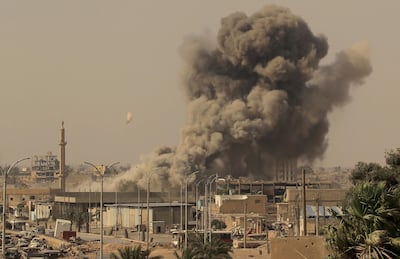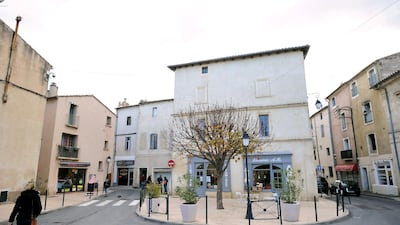Little about Lunel, nestling in France's serene, picturesque Camargue region between Nimes and Montpellier, initially sets it apart from other small southern towns.
In cars or on foot, locals and visitors cross paths with Muslim women pushing prams along impossibly narrow streets. Come late afternoon, high school pupils laugh and talk in the warm sunshine. Cafe society seems to be thriving.
But up to 30 inhabitants of Lunel succumbed to the lure of foreign fighting. Young men, radicalised under peer group pressure or by persuasive aspects of social media, headed to Syria or Iraq, and were followed by young women eager to be their brides.
Eight of the men, including a Jewish convert said by acquaintances to have changed almost overnight from being a Led Zeppelin fan to embracing militant Islam, were killed in the conflicts. At a Paris trial in April, four of five Lunel residents accused of involvement in fighter recruitment or active participation were jailed for as long as seven years.
The town, despite an outward appearance of tranquility, is "cut in two", according to Jean-Pierre Berthet, a retired judge.
Mr Berthet, who heads a community group, Lune et Liens, that attempts to bridge yawning gaps between the indigenous French and Muslim communities, remembers his court in Montpellier sending, on average, one young Muslim from the town into custody each week for petty or drug-linked crime.
"It is no longer the case but only because policing here has been increased quite sharply," he told The National.
___________
Read more:
Can France's new plan counter radicalisation?
Macron faces big challenge in defining Islam's place in France
Macron risks parliamentary unity with controversial new immigration plans
___________
But why Lunel? How did a sleepy French backwater of only 25,000 people become what has variously been called "Jihad city", "the French cauldron" and – in reference to the Brussels district that produced several of the attackers behind the Paris massacre of November 2015 – a "mini-Molenbeek"?
Mr Berthet, and Muslim community workers in the town, offer answers: the influence and power of the internet, high unemployment, a lack of opportunities that produces restlessness, boredom. There is also a lack of identity common among young French Muslims.
One of the accused in the Paris trial, Hamza Mosli, treated as a ringleader and sentenced to seven years in jail, told investigators: "I did a BTS (higher education diploma) in accountancy. At the end if it, all the indigenous French in my class found work. Only the two Arabs didn't." Mosli's brothers, Houssem and Sabri, were both killed fighting in Syria.
Tahar Akermi, the French-Algerian organiser of a youth and cultural centre, says joblessness alone cannot explain a transition from normal if humdrum lives to terrorism.
And Mr Berthet points out that most of those in the Paris case had jobs while the Jewish convert to an extremist interpretation of Islam came from a comfortable family background.
Mr Akermi, 50, a veteran of 30 years of working with young people, said: "The republic does give the impression of having turned its back on some of its population. The region of Occitanie is among the worst in France for unemployment, the department of Herault is among the most badly hit parts of the region and the town of Lunel suffers as much as anywhere in Herault."

But he refuses to accept that having no work should lead anyone to wish to "blow themselves up or go and do jihad".
For Mr Akermi, the media and especially internet providers should bear greater responsibility.
"Families often enough do not see it coming. If you have, say, five kids and four seem to turn out well, how do you stop the fifth becoming radicalised?
"Sooner or later, we have to accept that the internet, while a marvel in so many ways, can also be a place where you find barbarity, bombings, killings."
Mr Berthet says a "Salafist element", though small, is still present within Lunel's Muslim community.
Neither he nor Mr Akermi feels able to discount the possibility of the town producing more would-be jihadists, though both feel the current situation at least seems under control.
An impressive mosque on the outskirts of the town draws about 1,500 worshippers to Friday prayers, from a catchment area stretching dozens of kilometres from Lunel.
Its leadership is more moderate than three years ago when the mosque's then president, urged by the town's centre-right mayor Claude Arnaud, to speak out against radicalism, instead blamed France and said it was not for him to judge.
____________
Islamic terrorist threat clouds French call for unity
In France, Islamophobic scapegoating and authoritarianism rises
____________
Among families of those who left for abroad or were even killed, there is little appetite for talking openly. "The scars are too raw," said one who knows most of them.
The local council, controlled by the mainstream right thought the far right Front National is also strong, is reluctant to express itself, beyond a statement deploring recent history.
"Lunel is hard hit by the totalitarian ideology of radical Islam, which is the gateway to Islamic terrorism," it read. "Lunel calls on the state to put an end to this jihadist sector in the municipality."
In the face of clear divisions, perhaps what hope Lunel can allow itself comes from outside.
Jean Clementin, who works with Mr Berthet as the Lune et Liens treasurer, offers a heartening anecdote from a visit by Mourad Benchellali, previously held as a terrorism suspect in the US military jail at Guantanamo Bay in Cuba after being detained at an Al Qaeda training camp in Afghanistan.
Among members of his family prosecuted for links to terrorism, his parents were expelled to their native Algeria.
Mr Benchallali has always protested that he went with an older brother to Afghanistan expecting an adventure holiday. Since his release, he has lectured young Muslims on the need to resist extremism and in 2015, this work took him to a Lunel high school, the Lycee Feuillade, where he addressed a crowded hall.
"At the end, a young girl – I'd say she was somewhat Salafist – asked him how he could possibly go on living in such a country of non-believers," Mr Clementin recalls. "He replied that his dearest wish was to bring his mother back to France."


